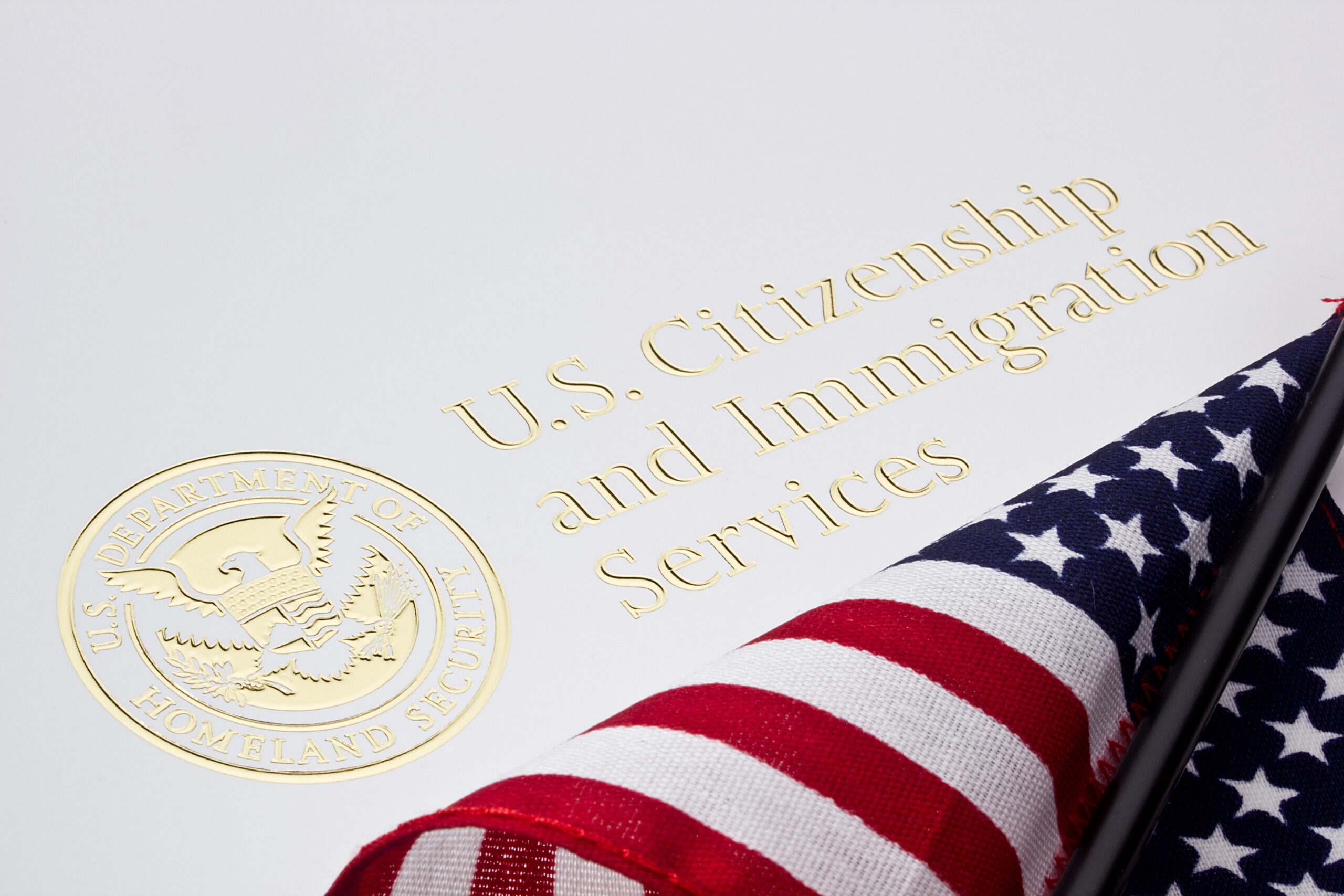USCIS Resumes Neighborhood Checks for Citizenship Applicants

USCIS has resumed neighborhood checks for citizenship applicants, adding a new layer of stress to an already difficult process. These surprise visits mean officers may come to your home or speak with neighbors to confirm details from your application.
A USCIS neighborhood check is a practice designed to confirm information about your residence, community ties, and moral character. For many immigrants, these visits feel intimidating and invasive.
At Rozas, we see our role as more than immigrant legal representation. We are advocates who help protect your rights and guide you through unexpected challenges like neighborhood checks.
The Return of USCIS Neighborhood Checks
Neighborhood checks are not new. In fact, USCIS used them decades ago under a law called INA §335, which allows the government to investigate applicants for citizenship. Over time, the practice faded and was no longer a routine part of the process.
Now, USCIS has announced it will resume neighborhood checks as part of citizenship applications. The agency says these visits are meant to prevent fraud, confirm that applicants truly live where they claim, and evaluate “good moral character.” In reality, it means immigration officers may once again show up in neighborhoods, asking questions about applicants and their daily lives.
For immigrant families, the return of these visits feels like yet another obstacle on a long and difficult road to citizenship. While USCIS describes the policy as a safeguard, many advocates worry it could discourage eligible residents from applying at all.
What Are USCIS Neighborhood Checks?
Neighborhood checks are site visits conducted by immigration officers during the citizenship process. They may:
-
Visit your home to confirm you live at the address on your application.
-
Speak with neighbors, landlords, or property managers about you.
-
Observe your daily living situation.
According to the USCIS Policy Manual, officers use these visits to verify residence, physical presence, and good moral character.
How USCIS Decides on Neighborhood Checks
USCIS decides case-by-case whether to conduct a neighborhood investigation after reviewing the evidence in your file. If questions arise, a check is more likely; if your evidence is strong, USCIS may waive it.
These visits are not random. Neighborhood checks are more likely when USCIS finds potential issues in your citizenship application, such as:
-
Conflicting information about your address or job history
-
Concerns about fraud or misrepresentation
-
Gaps in your record that require more proof
In short, USCIS uses neighborhood checks to make sure the information in your application is accurate. And while not every applicant will face one, even people who have done everything right may still get a knock on the door.
What Happens During a USCIS Neighborhood Check for Citizenship?
Every case is different, but a typical neighborhood check may look like this:
-
An officer visits your home to confirm you actually live there
-
Neighbors, landlords, or even coworkers may be asked simple questions about you
-
The officer makes notes, which are added to your citizenship file
These investigations usually focus on the area around your home and workplace and cover at least the five years before you filed for citizenship.
USCIS is authorized to conduct checks around your home and workplace and to ask questions of people who know you. These visits do not require officers to come inside your home or force anyone to participate.
How USCIS Neighborhood Checks Impact Citizenship Applications
Neighborhood checks can influence your citizenship application in both positive and negative ways:
-
Positive: If the visit confirms everything, your application is stronger.
-
Negative: If USCIS finds inconsistencies, it could lead to delays, requests for evidence, or denial.
-
Complicated: Concerns about good moral character raised during a visit may become part of USCIS’s final decision.
This is why preparation is critical, one mistake could derail years of work toward citizenship.
How to Prepare for a USCIS Neighborhood Check
Here are practical steps every applicant should take:
-
Keep your address current. File Form AR-11 whenever you move. Even something as simple as forgetting to report a move could cause USCIS to question your application.
-
Stay consistent. Make sure your application, testimony, and supporting documents all match. If your tax returns list one address but your N-400 lists another, that could raise red flags.
- Gather testimonial letters. USCIS encourages letters from neighbors, employers, or community members; submitting them up front can help support a waiver of a neighborhood investigation.
-
Be honest. Don’t try to hide changes in your situation. Leaving out a family member or employer might feel easier, but if USCIS learns the truth through a neighborhood check, it could harm your case.
-
Work with a lawyer. An immigration lawyer can review your file, spot risks before USCIS does, and prepare you for what to expect if an officer visits.
At Rozas, we’ve helped thousands of clients successfully apply for citizenship. We know how even small errors can create big problems, but with the right preparation, you can stay protected.
How USCIS Neighborhood Checks Affect Immigrant Communities
Beyond individual cases, neighborhood checks can create fear in immigrant communities. Families may worry that officers knocking on doors will alarm neighbors or cause unwanted attention. Some eligible immigrants may even hesitate to apply for citizenship because they fear being singled out.
Advocates argue that while the government frames these checks as fraud prevention, they can also feel like surveillance. This is why Rozas emphasizes not only legal preparation but also support for immigrants navigating the emotional weight of the process. You should never feel alone when your future in the United States is at stake.
Do USCIS Neighborhood Checks for Citizenship Go Too Far?
For many applicants, USCIS neighborhood checks feel intrusive. Having officers talk to your neighbors or watch your home can be unsettling.
But under immigration law, these checks are allowed. However, officers do have limits:
-
They cannot enter without your permission.
-
They cannot force people to speak with them.
-
They must still decide your case based on the full evidence, not just one visit.
If you believe a USCIS officer overstepped, you should contact an immigration lawyer immediately.
Why Legal Help Matters in Gaining U.S. Citizenship
Citizenship is one of the most important milestones in your life. With new hurdles like neighborhood checks, having an immigration lawyer on your side makes all the difference.
At Rozas, we help clients:
-
File accurate and complete citizenship applications.
-
Prepare for interviews and possible site visits.
-
Respond to USCIS concerns or requests for more evidence.
-
Protect their rights throughout the process.
Your future deserves the strongest defense possible. We are here to fight for you every step of the way.
Take the Next Step in Your Citizenship Journey
USCIS neighborhood checks are just one more reason the citizenship process can feel overwhelming. But with the right preparation and legal guidance, you don’t have to face it alone.
📲 Schedule a consultation with Rozas today or call us at 225-341-6945 to get started.
Stay Informed
Immigration rules can change quickly. Staying informed is one of the best ways to protect your future.
👉 Subscribe to the Rozas Immigration Newsletter for free updates on immigration policy, court rulings, and application tips that matter to your family.
You can also follow us for daily updates on our social media pages.
- Follow Rozas on Instagram, Facebook, and Youtube
• Follow Immigration Lawyer David Rozas on TikTok
Written by David Joseph Rozas
David Rozas is an experienced criminal and immigration lawyer and one of the founding partners of Rozas & Rozas Law Firm. He has been with the firm since 2004, joining his brother, Greg in practice. David concentrates his law practice on criminal defense and immigration.

.svg)















